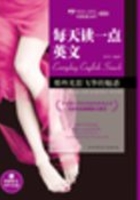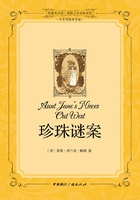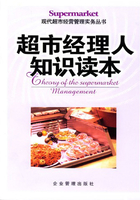She thanked him again and again; and with a sweetness of address which always attended her invited him to be seated. But this he declined, as he was dirty and wet. Mrs. Dashwood then begged to know to whom she was obliged. His name, he replied, was Willoughby, and his present home was at Allenham, from whence he hoped she would allow him the honour of calling to-morrow to inquire after Miss Dashwood. The honour was readily granted, and he then departed, to make himself still more interesting in the midst of an heavy rain.
His manly beauty and more than common gracefulness were instantly the theme of general admiration, and the laugh which his gallantry raised against Marianne, received particular spirit from his exterior attractions. Marianne herself had seen less of his person than the rest, for the confusion which crimsoned over her face, on his lifting her up, had robbed her of the power of regarding him after their entering the house. But she had seen enough of him to join in all the admiration of the others, and with an energy which always adorned her praise. His person and air were equal to what her fancy had ever drawn for the hero of a favourite story; and in his carrying her into the house with so little previous formality, there was a rapidity of thought which particularly recommended the action to her. Every circumstance belonging to him was interesting. His name was good; his residence was in their favourite village; and she soon found out that of all manly dresses a shooting-jacket was the most becoming. Her imagination was busy; her reflections were pleasant; and the pain of a sprained ankle was disregarded.
Sir John called on them as soon as the next interval of fair weather that morning allowed him to get out of doors; and Marianne's accident being related to him, he was eagerly asked whether he knew any gentleman of the name of Willoughby at Allenham.
"Willoughby!"cried Sir John;"What,is he in the country?That is good news however; I will ride over to-morrow, and ask him to dinner on Thursday."
"You know him then," said Mrs. Dashwood.
"Know him! To be sure I do. Why, he is down here every year."
"And what sort of a young man is he?"
"As good a kind of fellow as ever lived, I assure you. A very decent shot, and there is not a bolder rider in England."
"And is that all you can say for him?"cried Marianne indignantly."But what are his manners on more intimate acquaintance? What his pursuits, his talents and genius?"
Sir John was rather puzzled.
"Upon my soul," said he, "I do not know much about him as to all that.But he is a pleasant,good humoured fellow,and has got the nicest little black bitch of a pointer I ever saw. Was she out with him to-day?"
But Marianne could no more satisfy him as to the colour of Mr. Willoughby's pointer, than he could describe to her the shades of his mind.
"But who is he?" said Elinor. "Where does he come from? Has he a house at Allenham?"
On this point Sir John could give more certain intelligence; and he told them that Mr. Willoughby had no property of his own in the country; that he resided there only while he was visiting the old lady at Allenham Court, to whom he was related, and whose possessions he was to inherit; adding, "Yes, yes, he is very well worth catching, I can tell you, Miss Dashwood; he has a pretty little estate of his own in Somersetshire besides; and if I were you, I would not give him up to my younger sister in spite of all this tumbling down hills. Miss Marianne must not expect to have all the men to herself. Brandon will be jealous if she does not take care."
"I do not believe," said Mrs. Dashwood with a good humoured smile, "that Mr. Willoughby will be incommoded by the attempts of either of my daughters towards what you call catching him.It is not an employment to which they have been brought up. Men are very safe with us, let them be ever so rich. I am glad to find, however, from what you say, that he is a respectable young man, and one whose acquaintance will not be ineligible."
"He is as good a sort of fellow, I believe, as ever lived," repeated Sir John. "I remember last Christmas, at a little hop at the park, he danced from eight o'clock till four without once sitting down."
"Did he indeed?" cried Marianne, with sparkling eyes, "and with elegance, with spirit?"
"Yes, and he was up again at eight to ride to covert."
"That is what I like; that is what a young man ought to be. Whatever be his pursuits, his eagerness in them should know no moderation and leave him no sense of fatigue."
"Aye, aye, I see how it will be," said Sir John. "I see how it will be. You will be setting your cap at him now and never think of poor Brandon."
"That is an expression, Sir John," said Marianne warmly, "which I particularly dislike. I abhor every commonplace phrase by which wit is intended; and 'setting one’s cap at a man’ ,or 'making a conquest’,are the most odious of all. Their tendency is gross and illiberal; and if their construction could ever be deemed clever, time has long ago destroyed all its ingenuity."
Sir John did not much understand this reproof; but he laughed as heartily as if he did and then replied, "Aye, you will make conquests enough, I dare say, one way or other. Poor Brandon! He is quite smitten already, and he is very well worth setting your cap at, I can tell you, in spite of all this tumbling about and spraining of ankles."
Chapter 10
MARIANNE'S PRESERVER, AS Margaret, with more elegance than precision, styled Willoughby, called at the cottage early the next morning to make his personal inquiries. He was received by Mrs. Dashwood with more than politeness; with a kindness which Sir John's account of him and her own gratitude prompted; and everything that passed during the visit tended to assure him of the sense, elegance, mutual affection, and domestic comfort of the family to whom accident had now introduced him. Of their personal charms he had not required a second interview to be convinced.
Miss Dashwood had a delicate complexion, regular features, and a remarkably pretty figure. Marianne was still handsomer. Her form, though not so correct as her sister's, in having the advantage of height, was more striking; and her face was so lovely, that when in the common cant of praise she was called a beautiful girl, truth was less violently outraged than usually happens. Her skin was very brown, but from its transparency, her complexion was uncommonly brilliant; her features were all good; her smile was sweet and attractive, and in her eyes, which were very dark, there was a life, a spirit, an eagerness which could hardly be seen without delight. From Willoughby their expression was at first held back by the embarrassment which the remembrance of his assistance created. But when this passed away, when her spirits became collected, when she saw that to the perfect good breeding of the gentleman, he united frankness and vivacity, and above all, when she heard him declare that of music and dancing he was passionately fond, she gave him such a look of approbation as secured the largest share of his discourse to herself for the rest of his stay.
It was only necessary to mention any favourite amusement to engage her to talk. She could not be silent when such points were introduced, and she had neither shyness nor reserve in their discussion. They speedily discovered that their enjoyment of dancing and music was mutual, and that it arose from a general conformity of judgment in all that related to either. Encouraged by this to a further examination of his opinions, she proceeded to question him on the subject of books; her favourite authors were brought forward and dwelt upon with so rapturous a delight that any young man of five and twenty must have been insensible indeed not to become an immediate convert to the excellence of such works, however disregarded before. Their taste was strikingly alike. The same books, the same passages were idolized by each; or if any difference appeared, any objection arose, it lasted no longer than till the force of her arguments and the brightness of her eyes could be displayed. He acquiesced in all her decisions, caught all her enthusiasm; and long before his visit concluded, they conversed with the familiarity of a long-established acquaintance.
"Well,Marianne,"said Elinor,as soon as he had left them,"for one morning I think you have done pretty well. You have already ascertained Mr. Willoughby's opinion in almost every matter of importance. You know what he thinks of Cowper and Scott; you are certain of his estimating their beauties as he ought, and you have received every assurance of his admiring Pope no more than is proper. But how is your acquaintance to be long supported under such extraordinary dispatch of every subject for discourse? You will soon have exhausted each favourite topic. Another meeting will suffice to explain his sentiments on picturesque beauty, and second marriages, and then you can have nothing further to ask."
"Elinor," cried Marianne, "is this fair? Is this just? Are my ideas so scanty? But I see what you mean. I have been too much at my ease, too happy, too frank. I have erred against every commonplace notion of decorum; I have been open and sincere where I ought to have been reserved, spiritless, dull, and deceitful. Had I talked only of the weather and the roads, and had I spoken only once in ten minutes, this reproach would have been spared."
"My love," said her mother, "you must not be offended with Elinor;she was only in jest. I should scold her myself if she were capable of wishing to check the delight of your conversation with our new friend."Marianne was softened in a moment.
Willoughby, on his side, gave every proof of his pleasure in their acquaintance, which an evident wish of improving it could offer. He came to them every day. To inquire after Marianne was at first his excuse; but the encouragement of his reception, to which every day gave greater kindness, made such an excuse unnecessary before it had ceased to be possible by Marianne's perfect recovery. She was confined for some days to the house; but never had any confinement been less irksome. Willoughby was a young man of good abilities, quick imagination, lively spirits, and open, affectionate manners. He was exactly formed to engage Marianne's heart, for with all this, he joined not only a captivating person, but a natural ardour of mind which was now roused and increased by the example of her own, and which recommended him to her affection beyond everything else.
His society became gradually her most exquisite enjoyment. They read, they talked, they sang together; his musical talents were considerable; and he read with all the sensibility and spirit which Edward had unfortunately wanted.
In Mrs. Dashwood's estimation he was as faultless as in Marianne's;and Elinor saw nothing to censure in him but a propensity, in which he strongly resembled and peculiarly delighted her sister, of saying too much what he thought on every occasion without attention to persons or circumstances. In hastily forming and giving his opinion of other people, in sacrificing general politeness to the enjoyment of undivided attention where his heart was engaged, and in slighting too easily the forms of worldly propriety, he displayed a want of caution which Elinor could not approve in spite of all that he and Marianne could say in its support.
Marianne began now to perceive that the desperation which had seized her at sixteen and a half, of ever seeing a man who could satisfy her ideas of perfection, had been rash and unjustifiable. Willoughby was all that her fancy had delineated in that unhappy hour and in every brighter period as capable of attaching her; and his behaviour declared his wishes to be in that respect as earnest as his abilities were strong.
Her mother too, in whose mind not one speculative thought of their marriage had been raised by his prospect of riches, was led before the end of a week to hope and expect it and secretly to congratulate herself on having gained two such sons-in-law as Edward and Willoughby.
Colonel Brandon's partiality for Marianne, which had so early been discovered by his friends, now first became perceptible to Elinor when it ceased to be noticed by them. Their attention and wit were drawn off to his more fortunate rival; and the raillery which the other had incurred before any partiality arose was removed when his feelings began really to call for the ridicule so justly annexed to sensibility. Elinor was obliged, though unwillingly, to believe that the sentiments which Mrs. Jennings had assigned him for her own satisfaction were now actually excited by her sister; and that however a general resemblance of disposition between the parties might forward the affection of Mr. Willoughby, an equally striking opposition of character was no hindrance to the regard of Colonel Brandon. She saw it with concern; for what could a silent man of five and thirty hope when opposed by a very lively one of five and twenty? And as she could not even wish him successful, she heartily wished him indifferent. She liked him; in spite of his gravity and reserve, she beheld in him an object of interest. His manners, though serious, were mild; and his reserve appeared rather the result of some oppression of spirits than of any natural gloominess of temper. Sir John had dropped hints of past injuries and disappointments which justified her belief of his being an unfortunate man, and she regarded him with respect and compassion.
Perhaps she pitied and esteemed him the more because he was slighted by Willoughby and Marianne, who, prejudiced against him for being neither lively nor young, seemed resolved to undervalue his merits.
"Brandon is just the kind of man," said Willoughby one day when they were talking of him together, "Whom everybody speaks well of, and nobody cares about; whom all are delighted to see, and nobody remembers to talk to."
"That is exactly what I think of him," cried Marianne.
"Do not boast of it, however," said Elinor, "for it is injustice in both of you. He is highly esteemed by all the family at the park, and I never see him myself without taking pains to converse with him."
"That he is patronized by you,"replied Willoughby,"is certainly in his favour; but as for the esteem of the others, it is a reproach in itself. Who would submit to the indignity of being approved by such women as Lady Middleton and Mrs. Jennings, that could command the indifference of anybody else?"
"But perhaps the abuse of such people as yourself and Marianne will make amends for the regard of Lady Middleton and her mother. If their praise is censure, your censure may be praise, for they are not more undiscerning than you are prejudiced and unjust."
"In defence of your protegé you can even be saucy."
"My protegé as you call him, is a sensible man; and sense will always have attractions for me. Yes, Marianne, even in a man between thirty and forty. He has seen a great deal of the world; has been abroad;has read, and has a thinking mind. I have found him capable of giving me much information on various subjects, and he has always answered my inquiries with the readiness of good breeding and good nature."
"That is to say," cried Marianne contemptuously, "he has told you that in the East Indies the climate is hot and the mosquitoes are troublesome."
"He would have told me so,I doubt not,had I made any such inquiries, but they happened to be points on which I had been previously informed."
"Perhaps," said Willoughby, "his observations may have extended to the existence of nabobs, gold mohrs, and palanquins."
"I may venture to say that his observations have stretched much farther than your candour.But why should you dislike him?"
"I do not dislike him. I consider him, on the contrary, as a very respectable man, who has everybody's good word and nobody's notice;who has more money than he can spend, more time than he knows how to employ, and two new coats every year."
"Add to which," cried Marianne, "that he has neither genius, taste, nor spirit. That his understanding has no brilliancy, his feelings no ardour, and his voice no expression."
"You decide on his imperfections so much in the mass," replied Elinor, "and so much on the strength of your own imagination, that the commendation I am able to give of him is comparatively cold and insipid. I can only pronounce him to be a sensible man, well-bred, well-informed, of gentle address, and I believe possessing an amiable heart."
"Miss Dashwood," cried Willoughby, "you are now using me unkindly. You are endeavouring to disarm me by reason and to convince me against my will. But it will not do. You shall find me as stubborn as you can be artful. I have three unanswerable reasons for disliking Colonel Brandon: he has threatened me with rain when I wanted it to be fine; he has found fault with the hanging of my curricle, and I cannot persuade him to buy my brown mare. If it will be any satisfaction to you, however, to be told that I believe his character to be in other respects irreproachable, I am ready to confess it. And in return for an acknowledgment which must give me some pain, you cannot deny me the privilege of disliking him as much as ever. "
Chapter 11
LITTLE HAD MRS. Dashwood or her daughters imagined when they first came into Devonshire, that so many engagements would arise to occupy their time as shortly presented themselves, or that they should have such frequent invitations and such constant visitors as to leave them little leisure for serious employment. Yet such was the case. When Marianne was recovered, the schemes of amusement at home and abroad, which Sir John had been previously forming, were put in execution. The private balls at the park then began; and parties on the water were made and accomplished as often as a showery October would allow. In every meeting of the kind Willoughby was included; and the ease and familiarity which naturally attended these parties were exactly calculated to give increasing intimacy to his acquaintance with the Dashwoods, to afford him opportunity of witnessing the excellencies of Marianne, of marking his animated admiration of her, and of receiving in her behaviour to himself the most pointed assurance of her affection.
Elinor could not be surprised at their attachment. She only wished that it were less openly shown; and once or twice did venture to suggest the propriety of some self-command to Marianne. But Marianne abhorred all concealment where no real disgrace could attend unreserve;and to aim at the restraint of sentiments which were not in themselves illaudable appeared to her not merely an unnecessary effort but a disgraceful subjection of reason to commonplace and mistaken notions. Willoughby thought the same; and their behaviour at all times was an illustration of their opinions.
When he was present she had no eyes for anyone else. Everything he did, was right. Everything he said, was clever. If their evenings at the park were concluded with cards, he cheated himself and all the rest of the party to get her a good hand. If dancing formed the amusement of the night, they were partners for half the time; and when obliged to separate for a couple of dances, were careful to stand together and scarcely spoke a word to anybody else. Such conduct made them of course most exceedingly laughed at; but ridicule could not shame and seemed hardly to provoke them.
Mrs. Dashwood entered into all their feelings with a warmth which left her no inclination for checking this excessive display of them. To her it was but the natural consequence of a strong affection in a young and ardent mind.
This was the season of happiness to Marianne. Her heart was devoted to Willoughby, and the fond attachment to Norland which she brought with her from Sussex was more likely to be softened than she had thought it possible before, by the charms which his society best-owed on her present home.
Elinor's happiness was not so great. Her heart was not so much at ease, nor her satisfaction in their amusements so pure. They afforded her no companion that could make amends for what she had left behind, nor that could teach her to think of Norland with less regret than ever. Neither Lady Middleton nor Mrs. Jennings could supply to her the conversation she missed; although the latter was an everlasting talker, and from the first had regarded her with a kindness which ensured her a large share of her discourse. She had already repeated her own history to Elinor three or four times; and had Elinor's memory been equal to her means of improvement, she might have known very early in their acquaintance all the particulars of Mr. Jennings's last illness and what he said to his wife a few minutes before he died. Lady Middleton was more agreeable than her mother, only in being more silent. Elinor needed little observation to perceive that her reserve was a mere calmness of manner with which sense had nothing to do. Towards her husband and mother she was the same as to them; and intimacy was therefore neither to be looked for nor desired. She had nothing to say one day that she had not said the day before. Her insipidity was invariable, for even her spirits were always the same; and though she did not oppose the parties arranged by her husband, provided everything were conducted in style and her two eldest children attended her, she never appeared to receive more enjoyment from them than she might have experienced in sitting at home; and so little did her presence add to the pleasure of the others by any share in their conversation, that they were sometimes only reminded of her being amongst them by her solicitude about her troublesome boys.
In Colonel Brandon alone, of all her new acquaintance, did Elinor find a person who could in any degree claim the respect of abilities, excite the interest of friendship, or give pleasure as a companion. Willoughby was out of the question. Her admiration and regard, even her sisterly regard, was all his own; but he was a lover; his attentions were wholly Marianne's, and a far less agreeable man might have been more generally pleasing. Colonel Brandon, unfortunately for himself, had no such encouragement to think only of Marianne, and in conversing with Elinor he found the greatest consolation for the total indifference of her sister.
Elinor's compassion for him increased, as she had reason to suspect that the misery of disappointed love had already been known by him. This suspicion was given by some words which accidentally dropped from him one evening at the park, when they were sitting down together by mutual consent while the others were dancing. His eyes were fixed on Marianne, and after a silence of some minutes, he said with a faint smile,"Your sister, I understand, does not approve of second attachments."
"No," replied Elinor, "her opinions are all romantic."
"Or rather, as I believe, she considers them impossible to exist."
"I believe she does. But how she contrives it without reflecting on the character of her own father who had himself two wives, I know not. A few years however will settle her opinions on the reasonable basis of common sense and observation; and then they may be more easy to define and to justify than they now are by anybody but herself."
"This will probably be the case," he replied; "and yet there is something so amiable in the prejudices of a young mind, that one is sorry to see them give way to the reception of more general opinions."
"I cannot agree with you there," said Elinor. "There are inconveniences attending such feelings as Marianne's which all the charms of enthusiasm and ignorance of the world cannot atone for. Her systems have all the unfortunate tendency of setting propriety at nought;and a better acquaintance with the world is what I look forward to as her greatest possible advantage."
After a short pause he resumed the conversation by saying—
"Does your sister make no distinction in her objections against a second attachment? Or is it equally criminal in everybody? Are those who have been disappointed in their first choice, whether from the inconstancy of its object or the perverseness of circumstances, to be equally indifferent during the rest of their lives?"
"Upon my word, I am not acquainted with the minutia of her principles. I only know that I never yet heard her admit any instance of a second attachment's being pardonable."















